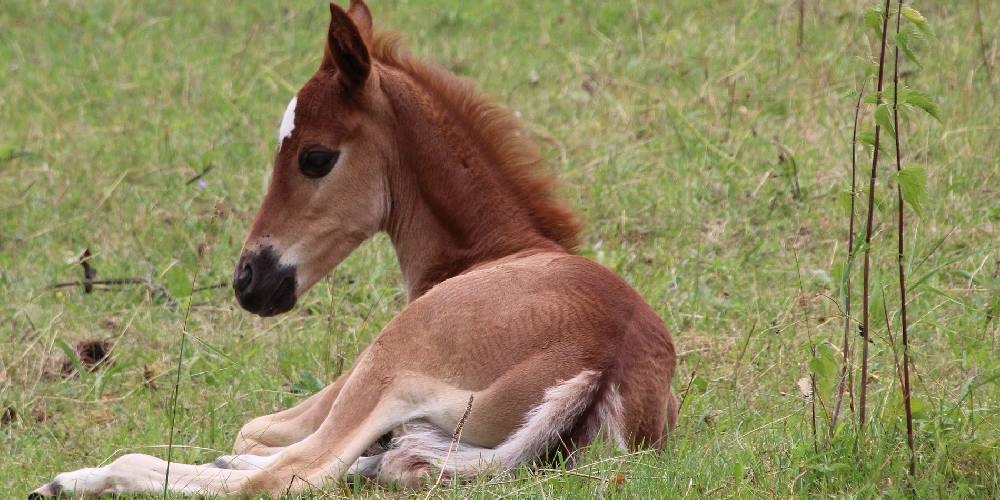People ask all the time, “If horses sleep standing up, then can they lay down?” “Can horses lay down? I’ve never seen one laying down” and more questions along the same line.
So can horses lay down?
Yes! Horses actually lay down all the time. Lying down is only something a horse does when they feel safe, and it can be for multiple reasons. Typically a horse will lie down to rest or sleep, but they also lie down to roll on the ground.
Why do Horses Lie Down?
Horses, as mentioned above, lie down for many reasons. In the wild, they will hardly ever lie down, because when lying on the ground, horses are that much more vulnerable to potential predators. They really will only lie down on the ground if they feel that they are in a safe and familiar place.
Lying Down to Sleep
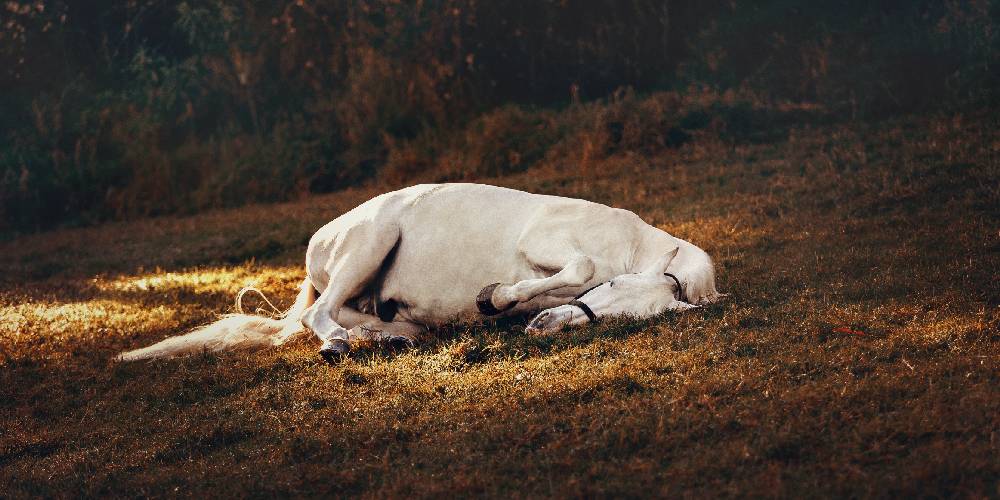
Horses will sometimes lie down to get a deeper sleep. When horses sleep in a standing position, they aren’t getting deep sleep. Horses need deep sleep and REM sleep here and there too so they would get this when lying down to sleep. Domesticated horses are more likely to do this as they are typically kept in a safe and comfortable environment with little to no dangers around them.
Lying down to sleep is a behavior seen less often in wild horses than in domesticated horses because wild horses need to be alert and keep an eye out for predators. When wild horses do need to get deeper sleep and lie down to rest, there is typically a horse that is awake and looking for predators to keep the herd safe.
Almost always, foals will sleep while lying down whether it is day or night. Their legs may still be a little weak and they are safe because they have their mother there to protect them.
Crossfiire, one of my Arabians, will lie down to sleep every night. If I would get to the barn in time to see him he would almost always be taking a snooze on the ground. He is also known to take naps in the barnyard during the day, so sometimes you can find him lying on his side and soaking up some sun in the middle of the yard.
Lying Down to Roll
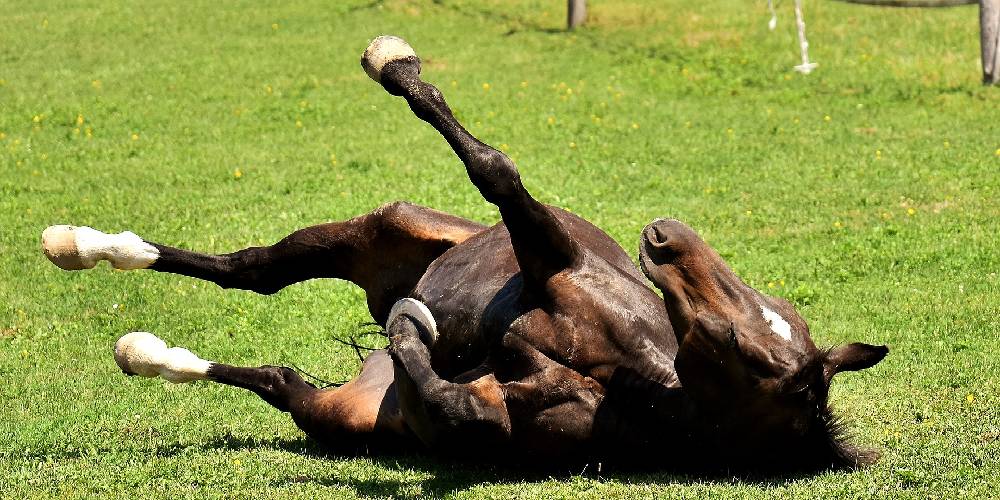
Horses roll all the time and it is a behavior seen in both wild and domesticated horses.
One thing to look out for with rolling is if your horse is doing it excessively. Kicking at the belly, looking back at their stomach, and excessive rolling are big indicators that your horse may be suffering from a case of colic which needs medical attention as soon as possible.
Lying Down to Give Birth
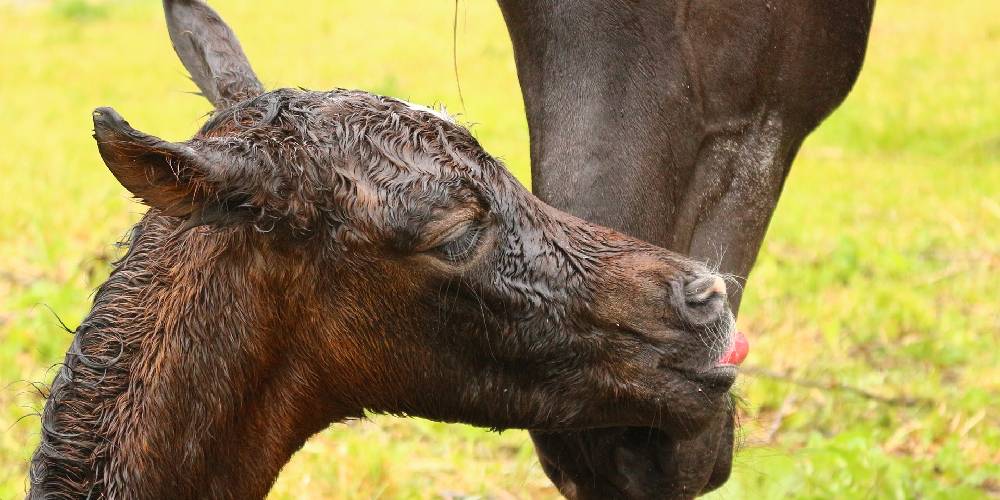
Horses give birth lying down. In the wild, a mare getting ready to have her foal will leave the herd and find a safe and secluded place to have her baby. The mare is usually gone from the herd for about one to two days and will return with her foal when she’s ready to come back.
Horses wild and domesticated alike will give birth lying down in a safe place. Often large birthing stalls are where domesticated horses will have their babies.
Why Some Horses Might Not Lie Down
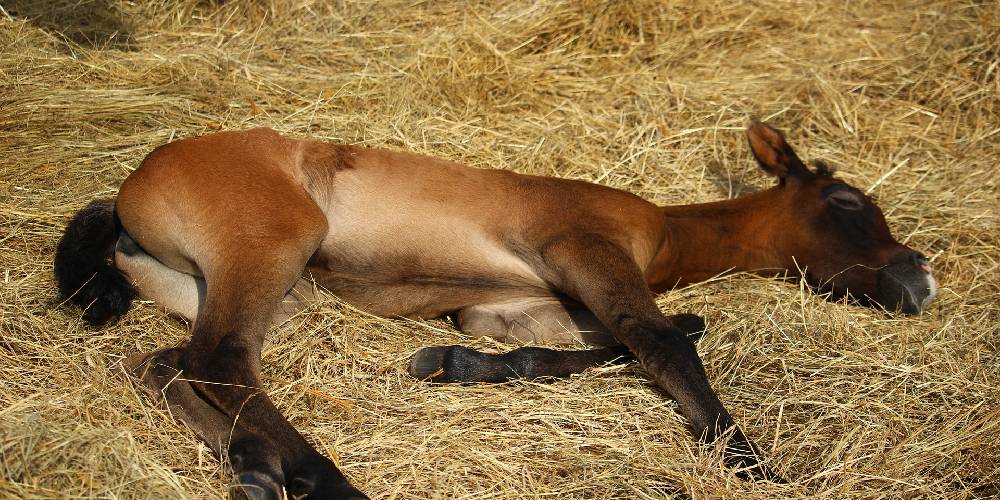
They Feel Insecure or Unsafe
Horses will refuse to lie down to rest if they feel that they are in an unsafe or unfamiliar environment. Lying down puts more risk on the horse because when they lie down they are more vulnerable to potential predators.
They Have Difficulty Standing Back Up
Horses that have arthritis, lameness, joint pain, muscle pain, musculoskeletal pain, or other physical ailments may already have difficulty moving, so lying down and getting back up can be difficult or painful for them.
They are on a Rough or Uncomfortable Surface
Horses that are standing on a rough, rocky, or hard surface may not lie down because they won’t be able to relax on the surface they’re on. They may also struggle to stand up or get back up on the same surface.
Indicators that Your Horse May Need Medical Attention
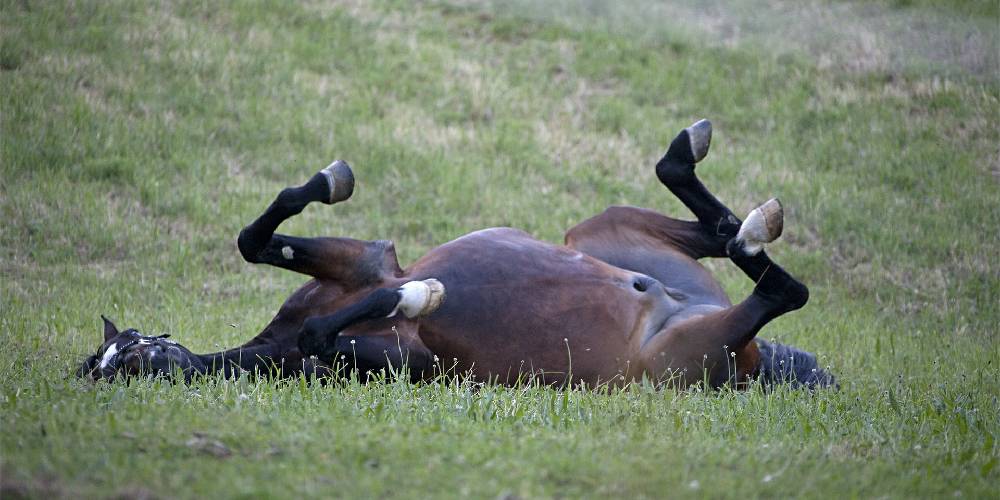
Lying Down For a Long Time
Most horses when suffering from colic will roll excessively, but some are known to lie on their side quietly. If your horse has been lying down for a long time iot could mean they are suffering from colic.
Excessive Rolling
This is a big indicator that your horse is suffering from colic. Horses that roll excessively usually are in a lot of pain and have a gastrointestinal issue.
Inability to Stand
Horses can die fairly quickly if they can’t get up. This is because it is not natural for a horse to be lying on its side for an extended period of time. A horse’s organs aren’t able to function properly when a horse is lying down like that because there is so much weight on them.
If a horse is lying down for a long time as well, they will lose muscle definition, get dehydrated, and lose weight. Horses with severe laminitis and that are kept alive are a prime example of this.
Why Horses Need to Lie Down
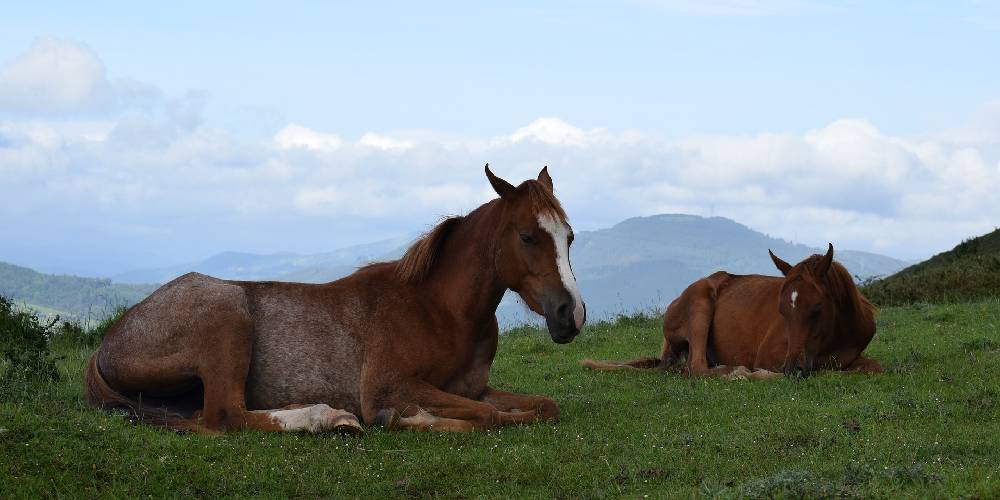
Horses need to get their sleep and lying down is needed to get the deep sleep they need for proper health. If horses don’t lie down and get deep sleep and REM sleep, they can begin to suffer from sleep deprivation. Horses with sleep deprivation will be clumsy, drowsy, and lazy.
FAQs On Horses Lying Down
Is it better for a horse to sleep lying down or standing up?
Both forms of sleeping are important for horses to do. sleeping standing up can be done at any time and it allows them to be ready to run if they have to face danger, however, sleeping lying down is necessary for horse health.
Without deep sleep acquired through sleeping lying down, horse’s can’t perform well as thety are suffering from sleep deprivation.
Is it hard for horses to stand back up after lying down?
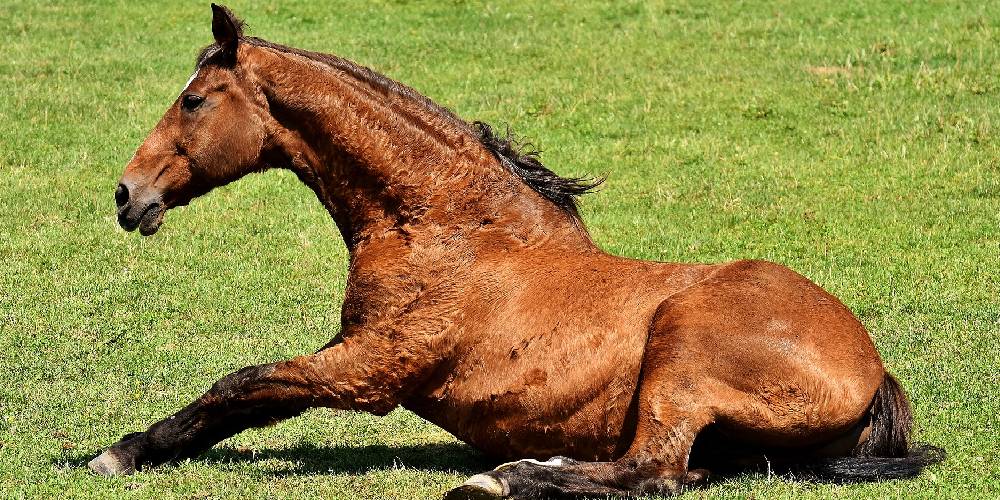
It should not be difficult for a horse to stand up after lying down. Some horses will have a harder time with this depending on how big they are, how old they are, or if they are suffering from any physical ailments, but they should never be in pain or having a very difficult time getting back up.

